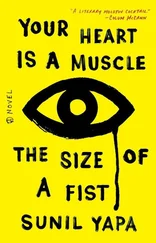Unbeknown to John’s mum, the neighbour was my auntie Jane and she leapt to my defence. ‘Pauline Tilston is my brother Ernie’s daughter and she was brought up extremely well,’ she told her, bristling. ‘She’s a good girl and John’s lucky to have her.’
Despite once being a maid, Pbyllis was always a bit of a snob, although she was proud of her social aspirations. She’d happily recount the story that her neighbours in Rotherham called her ‘Lady Muck’ because she had the cleanest house and the finest clothes. She had a Royal Albert tea service and wore Chanel perfume. It used to embarrass John how his mother would dress – or ‘overdress’, he’d say. He had a special aversion to her hats, especially the frothy ‘jelly bag’ ones that sat on top of her hair. ‘She came to meet me one time with what looked like a pair of knickers on her head,’ he complained. He’s never liked hats since.
Having learned flower arranging, cake decorating and dressmaking to the best of her considerable ability, Phyllis entered her family into a national newspaper competition as the ‘Most Typical Family in Britain’. Much to her indignation, they came second. Soon afterwards, Bert, who’d lost a leg at Dunkirk, received a grant from the British Legion to buy a new semi-detached house in Upton, which – once again – became the smartest in the street. A staunch socialist, a keen fundraiser for the Labour Party and a huge influence on John politically, Phyllis was a force of nature. Nobody would ever be good enough for her eldest son John. She hadn’t dragged her family from Prestatyn via a Rotherham terrace with a lav in the yard and coal dumped in the alleyway for him to take up with a girl who’d had a baby out of wedlock.
Fortunately, John didn’t share her view and after a while – perhaps because of Mr Guifreda singing my praises as well – his mother began to soften towards me. She offered to run me up a couple of nice outfits and was perfectly pleasant to me, even when her own marriage was in trouble.
As well as working on the railways, John’s father Bert was a magistrate, Labour councillor and loveable rogue who’d had several affairs. When John was just a lad, he’d spotted his father on the Chester Walls kissing a woman and was so shocked that he ran to the police station to report him. ‘I want you to arrest my dad!’ he told a sergeant on duty.
‘Go home, son, and don’t tell your mother,’ the sergeant replied, ruffling the hair on his head. John always laughed when he told that story but he felt terribly let down and still does to this day.
Bert was a big man with a big personality; everyone knew him, this gigolo who never paid for anything and only ever took his family on holidays to places like Bridlington and Scarborough to a trade union conference or to bluff his way into the Labour Party conferences and get a free drink. Phyllis didn’t seem to mind at first. Coming from a Welsh mining background, she was highly political too, hosting local Labour meetings in her home and delivering pamphlets all around the neighbourhood. In the end, though, politics was all they had in common.
Not long after we’d started dating, John’s parents announced that they were getting divorced after twenty-five years of marriage, which was quite something in those days. After years of trying to keep the peace between them, John was the head of the family now and Phyllis came to rely on him ever more. She even asked him to be a witness in the divorce case between her and Bert, but he refused, not wanting to be disloyal to either parent. Maybe because she and I now shared a social stigma, we seemed to get on better after that, even if she was always rather controlling and extremely protective of her son to the end of her days.
My visits to see my son became more and more infrequent owing to my long working hours, my shortage of money and the time I was now spending with John. I found myself speaking of Paul less and less, which felt like a betrayal, but I never stopped thinking of him, and I repeatedly refused to sign him over to the state. Perhaps having cropped my hair for a more sophisticated gamine look gave me the courage to stand firm.
My widowed mother, who was still courting Harry, never stopped working and couldn’t have helped me care for Paul even if she’d had the time or the energy. Harry worked full-time too and, even though he was a kind and generous man, wisely never tried to intervene. My brother Peter had emerged from his years in hospital and returned to work at BICC but had since moved to London to work in their overseas sales department. He’d write sometimes and send birthday presents but he’d never even set eyes on his nephew and Paul was never spoken about. I found myself thinking back to my father and wondering if things might have been different if he’d still been alive. Surely Dad would have found a way for us to keep his only grandchild?
Not long after I’d met John, I’d saved up enough money to go to Matlock again but my mother said she couldn’t go with me. To be honest, I don’t think she had the heart any more. She found it as upsetting as I did. I didn’t want to go alone but couldn’t think whom else to ask. Then I thought of John. The eldest of five children, John had a brother Ray, sisters Dawn and Vivian, and a little brother called Adrian who was born with a harelip and a cleft palate. I’d seen how kind and thoughtful he was with Adrian. He protected him and played with him so sweetly and that gladdened my heart. Nervously, I told John that I was going to see Paul and asked if he’d come along.
He didn’t even flinch. ‘We could make an outing of it,’ he replied. ‘There’s some pretty countryside round Matlock.’ He’d never once asked me about Paul’s father or what had happened between us. He just said he knew all that he needed to know. Part of me would have dearly liked him to have bombarded me with questions. My time with Jim, the lonely pregnancy, being at St Bridget’s, Paul’s birth and everything that had happened afterwards had been virtually erased from my life. John’s family certainly never brought it up. My mother rarely spoke of it and if I raised the subject, it only gave her an opportunity to tell me what I should do next. The girls at work no longer asked after Paul or what my plans for him were.
And so my innocent young son remained the elephant in the room that nobody dared discuss. Yet he was always on my mind and everywhere I looked there seemed to be reminders. John and I would often spend days off at Chester Zoo, and I’d see a mother and son wandering along holding hands and wonder why that couldn’t be Paul and me. I’d flick through racks of clothes in the children’s department of Brown’s and wish I could afford to buy some of them for him. I marked each anniversary privately in my heart: the day I first met Jim; the day I found out I was pregnant; Paul’s birthday on 2 January; the date I had to take him to Matlock and then leave.
There were times when I wanted to scream Paul’s name from the bottom of my lungs and tell everyone who’d listen how much I loved and missed him and thought about him night and day. ‘He’s my son and I want to keep him!’ I longed to shriek but instead I confined the screaming to inside my head.
Going to see Paul with John would be quite different from going with my mother. Ours was a new relationship and I knew I couldn’t blub all the way there and back as I normally did. It was one of the hardest things I’ve ever had to do: hold myself together when I walked into the nursery and realized that Paul didn’t know who I was any more. At two years old, he was wearing clothes I hadn’t chosen for him and was playing with friends I’d never met. He was clearly very attached to one particular nursery nurse, and was calling her ‘Mummy’. That broke my heart anew.
Читать дальше












